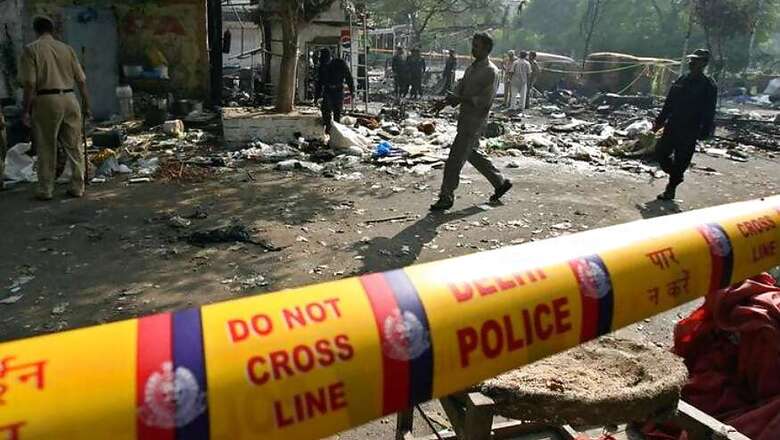
views
New Delhi: The judgment in one of the biggest terror attacks to take place in the national capital is out. And, it is a big slap on the face of the elite anti-terror wing of the Delhi Police.
But to many of those tracking terror-related cases in the national capital, this arrest isn’t actually a shocker. The red flag was raised as early as 2013, a milestone year for anti-terror agencies. This was the year when Yaseen Bhatkal, Asadullah Akhtar and other members of the top Indian Mujahideen (IM) leadership were arrested. Asadullah had then claimed that it was allegedly Atif Ameen of IM who had planted the bombs in the Delhi blast. The Special Cell at that point of time could have moved for discharge of these accused, but that didn’t happen. And now, the trial court judgment literally threw out the Delhi Police hypothesis.
“Prosecution has miserably failed to prove Rafiq Shah was involved in the placing of the bomb in the DTC bus on 29th October 2005. Therefore the part of the conversation regarding four boys having come back cannot be held to be referring to Mohammed Rafiq Shah,” says the court order.
The prosecution has not been able to prove any link between 'suspects ' Fazilli and Rafiq Shah on the one hand and Tariq Ahmad Dar on the other, it said. “The conversations, therefore, fall short in enabling this court to come to any definite conclusion that Dar was part of the conspiracy behind these blasts.”
Days after the serial blasts, a terror outfit, Islamic Revolutionary Front, had claimed responsibility in a fax sent to a local news agency in Kashmir, but the investigators insisted that it was a smokescreen and that it was actually the handiwork of Lashkar-e-Taiba.
Nearly a month later, the Special Cell claimed to have cracked the case. In a press conference, the police claimed that Tariq Ahmed Dar, at the behest of the LeT, orchestrated the attack. He arranged the logistics and finances for the serial blast, and selected the bombers and indoctrinated them, they alleged.
According to the police, Dar, who worked for an MNC, had two accomplices who were Pakistani nationals. The money for the attack was given to him from the Gulf. The chargesheet mentioned that LeT handler Abu Al Kama used a Thuraya satellite phone and called Dar on his mobile phone. Two such calls were part of the chargesheet.
Thus, the only criminality that Additional Sessions Judge Reetesh Singh could find in the entire police argument was under Sections 38 and 39 of the UAPA, which deals with those being members or having links with banned or proscribed organisation. Even though no charge was framed against Dar for offences under Section 38 and 39 of UAPA, the said offences are lesser compared to offences for which he was originally charged. Dar was charged with murder, waging war against nation and criminal conspiracy.
In the chargesheet, Delhi Police’s elite anti-terror organisation, the Special Cell, mentioned that Dar’s primary motive was money. His salary was just Rs10, 000 but he maintained four bank accounts and this is how he made money, it said.
The court debunked this theory too. It said: “Possibility arises of Dar working with Helen Pharmaceutical which was given 4-5 percent commission for sales turnover of stocks of Jhonson and Jhonson from which he might have received income.” The crucial cross-examination of one of the senior investigating officers also did not help the prosecution’s case.

















Comments
0 comment